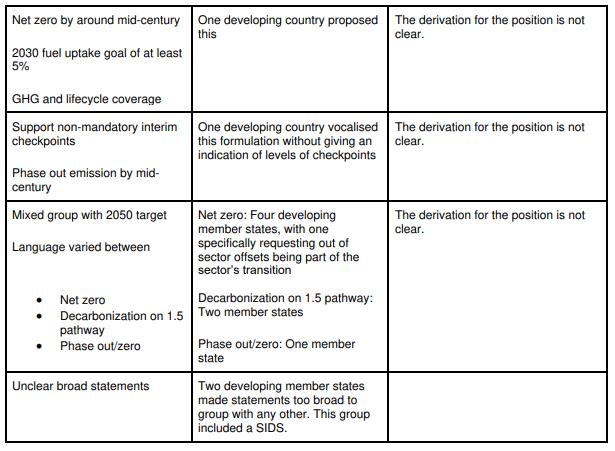The fifteenth Intersessional Working Group on Greenhouse Gases (ISWG GHG 15), which is the final working group meeting before the critical MEPC80, concluded on Friday 30rd of June, highlighting that IMO is at a tipping point and has a last chance to change the course on shipping decarbonization.
IMO MEPC 80 is taking place this week, July 3-7, 2023, where the adoption of a Revised GHG Reduction Strategy (Revised Strategy) is expected among others.
Specifically, UMAS highlights that the following details remain undecided:
- The Levels of Ambition (LOA) for the Revised Strategy and in particular whether the Revised Strategy ambitions are aligned with a pathway that would limit global temperature increase to 1.5.
- The commitment to a lifecycle coverage of the emissions, and avoidance of shifting emissions from sea to land
- Whether or not the Revised Strategy represents a commitment to a just and equitable transition
- When the mid term measures might be adopted and enter into force.
UMAS further explains that the drafting being forwarded to this week’s negotiations include some further narrowing down of options, however there are still large ranges on key parameters for example the 2030 and 2040 interim GHG reduction targets (now proposed to be called ‘indicative checkpoints’), for which the current leading proposal is a 20% GHG reduction in 2030 and 70% GHG reduction in 2040, likely on a well-to-wake basis. If these numbers solidify in the strategy, it will not be possible to say the IMO’s GHG reduction strategy is directly or transparently aligned with the 1.5 temperature goal.
As all eyes turn to MEPC 80, the Member States must strive to deliver a strategy that is 1.5 aligned and committed to a just and equitable transition for shipping.
..Dr Aly Shaw, Policy Lead at UMAS said.
Main ambition ‘formulations’ presented and their support
On the subject of Levels of Ambition, the room swiftly became divided on levels, timing, scope, and whether 2030 or 2040 Levels of Ambition would be mandatory or indicative. A summary of the main ambition ‘formulations’ and their support is shown in Table below:


 The other key items that remain under debate include the shortlisting of the mid-term measures and the way equitable/fair/just transition is included and referenced in both the Revised Strategy and in relation to mid-term measures. Although there was significant and coordinated opposition to the levy proposals moving forwards for finalisation from MEPC 80, there was a majority who supported this to happen, and GHG pricing is currently on track to move forwards. There was a majority supporting that the IMO’s timeline for adoption of the mid-term measures is by 2025.
The other key items that remain under debate include the shortlisting of the mid-term measures and the way equitable/fair/just transition is included and referenced in both the Revised Strategy and in relation to mid-term measures. Although there was significant and coordinated opposition to the levy proposals moving forwards for finalisation from MEPC 80, there was a majority who supported this to happen, and GHG pricing is currently on track to move forwards. There was a majority supporting that the IMO’s timeline for adoption of the mid-term measures is by 2025.
The main text going into this MEPC is not 1.5-aligned, but it still can be if there is a change in the dynamic.
..Dr Tristan Smith, Director of UMAS said.
The adoption of the Revised Strategy at MEPC 80 marks a pivotal moment for the international shipping sector. The decisions made during this week will shape the transition to follow. As the eyes of industry members, climate organisations, shipping stakeholders and nations turn toward the IMO, it will be a critical moment for identifying how the collective Members show their commitment to addressing the climate crisis and to enabling a just and equitable transition that leaves no one behind, UMAS pinpoints.
To remind, earlier this year, UMAS released a report which studies how unlocking much greater efficiency improvement is key to aligning shipping to 1.5ºC by 2030.






























































